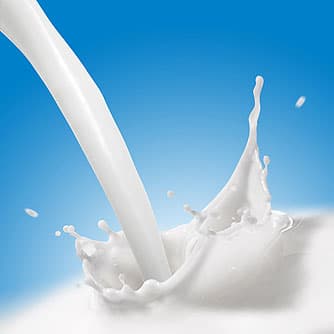Rich in magnesium, milk helps to reduce a person’s odds of developing metabolic syndrome, diabetes, and certain cancers. Previously, Stina Oredsson, from University of Lund (Sweden), and colleagues studied a milk protein, lactoferricin4-14 (Lfcin4-14), significantly reduces the growth rate of colon cancer cells over time by prolonging the period of the cell cycle before chromosomes are replicated. The team has now published findings from an investigation in which they exposed colon cancer cells to ultraviolet (UV) light that caused DNA damage and then grew the cells in the absence or presence of Lfcin4-14. The researchers found that UV light exposure resulted in an increase in assay expression – denoting increase in DNA damage, whereas treatment with Lfcin4-14 reduced that expression – correlating to reduced DNA damage. The mechanism for this effect was identified as an increase in flap endonuclease-1, a protein associated with DNA synthesis; a decrease in b-cell lymphoma 2-associated X protein, which is involved with cell death; and a decrease in the level of gamma-H2AX, indicating more efficient DNA repair. Observing that cancer cells, in general, have defects in the DNA repair mechanisms, the study authors conclude that: “lactoferricin4-14 treatment has beneficial effects.”
Milk Protein Halts Cancer Cells
C. Freiburghaus, H. Lindmark-Mansson, M. Paulsson, S. Oredsson. “Reduction of ultraviolet light-induced DNA damage in human colon cancer cells treated with a lactoferrin-derived peptide.” Journal of Dairy Science, Volume 95, Issue 10, October 2012, Pages 5552-5560.
RELATED ARTICLES




